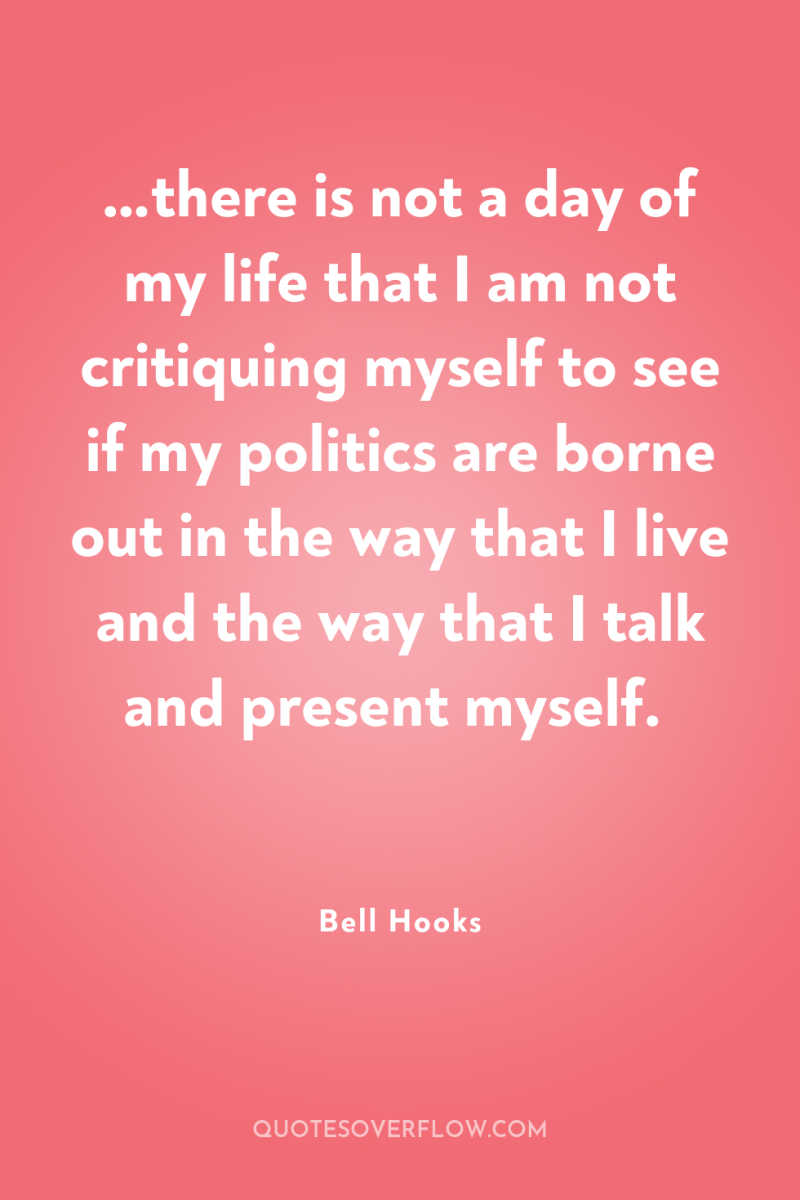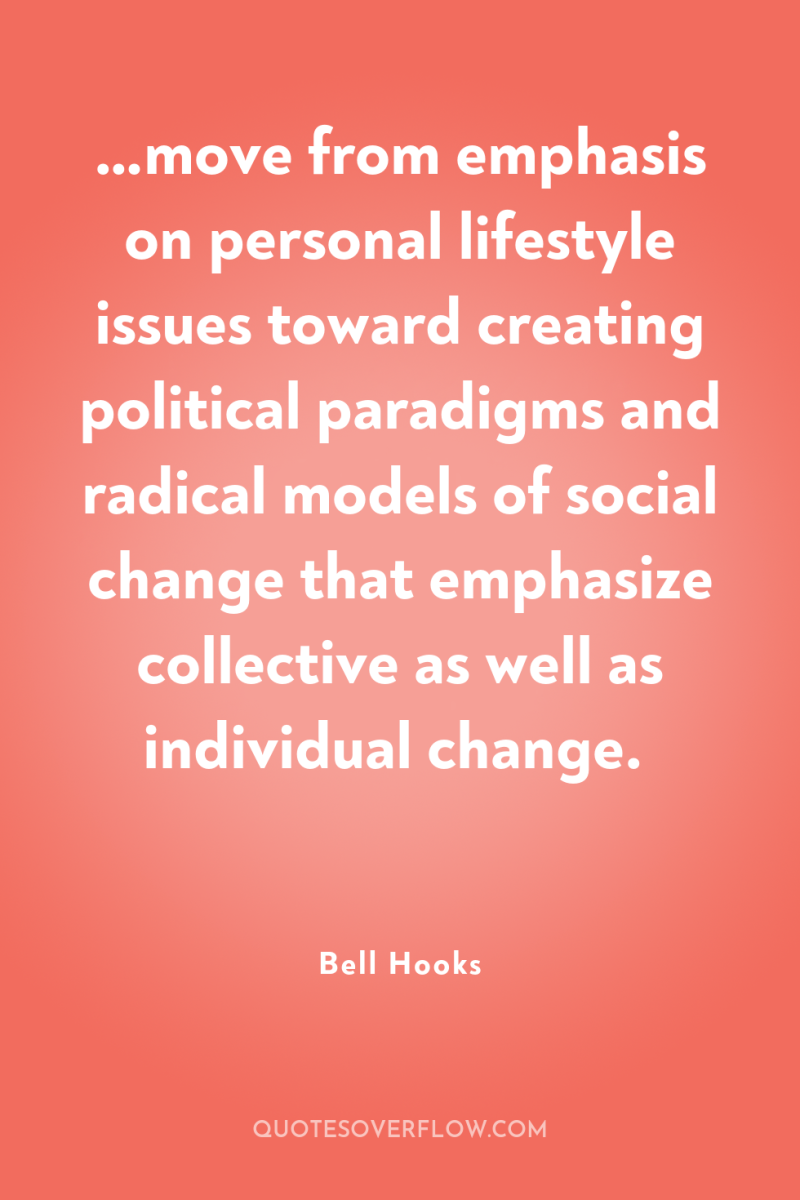
1
…there is not a day of my life that I am not critiquing myself to see if my politics are borne out in the way that I live and the way that I talk and present myself.Bell Hooks

2
…move from emphasis on personal lifestyle issues toward creating political paradigms and radical models of social change that emphasize collective as well as individual change.Bell Hooks
3
Maintaining connections with family and community across class boundaries demands more than just summary recall of where one’s roots are, where one comes from. It requires knowing, naming, and being ever-mindful of those aspects of one’s past that have enabled and do enable one’s self-development in the present, that sustain and support, that enrich. One must also honestly confront barriers that do exist, aspects of that past that do diminish.Bell Hooks
4
Feminist effort to end patriarchal domination should be of primary concern precisely because it insists on the eradication of exploitation and oppression in the family context and in all other intimate relationships. It is that political movement which most radically addresses the person — the personal — citing the need for the transformation of self, of relationships, so that we might be better able to act in a revolutionary manner, challenging and resisting domination, transforming the world outside the self.Bell Hooks
5
Individuals who speak languages other than English, who speak patois as well as standard English, find it a necessary aspect of self-affirmation not to feel compelled to chose one voice over another, not to claim one as more authentic but rather to construct social realities that celebrate, acknowledge and affirm differences, variety.Bell Hooks
6
…“white supremacy” is a much more useful term for understanding the complicity of people of color in upholding and maintaining racial hierarchies that do not involve force (i.e slavery, apartheid) than the term “internalized racism”- a term most often used to suggest that black people have absorbed negative feelings and attitudes about blackness. The term “white supremacy” enables us to recognize not only that black people are socialized to embody the values and attitudes of white supremacy, but we can exercise “white supremacist control” over other black people.Bell Hooks